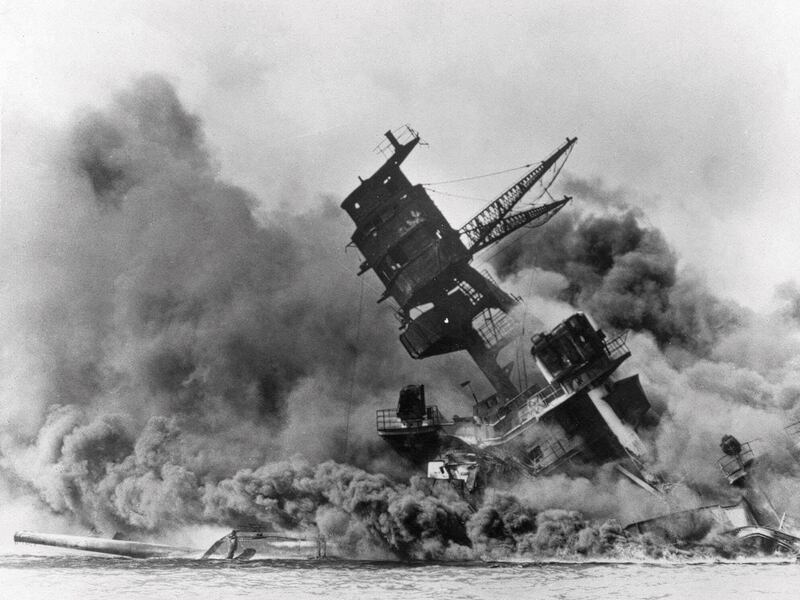The most recent statistics from the Department of Veterans Affairs show there are 325,574 U.S. WWII veterans still alive in 2020. But that figure is inaccurate, as is any fixed number tied to this group. That’s because 296 of them are dying every day.
To put this in perspective, 16 million Americans fought in that conflict.
The website statista.com estimates the last veteran of that war will die in 2043, but that person will be extremely old, an outlier.
Time is running out when it comes to honoring their enormous sacrifice in person, but time will never run out on the ability to learn from them.
Monday will mark 79 years since the bombing of Pearl Harbor. That day of “infamy” was the first of many days of sacrifice before the forces of tyranny were brought to heel.
WWII veterans have been dubbed the “greatest generation” for good reason. Americans like to think of themselves as free to pursue their personal goals and interests. Modern Americans express themselves through dress, hairstyle and a variety of cultural choices. They choose their own vocations freely and live where they wish. They naturally resist any authority telling them to do otherwise.
But once Franklin Roosevelt asked Congress to declare war, the greatest generation lost its ability to choose such things. For so many young people of that time, fighting for freedom became the only choice, thrust upon them by world events regardless of their own hopes, dreams and desires.
In total, 407,316 of them sacrificed not only their youth, but their lives, to that cause. Another 671,278 were wounded, many in ways that would permanently alter the course of their lives. That’s more than 1 million men and women who gave a priceless sacrifice directly responsible for the relative ease, comfort and prosperity Americans enjoy today, even in the midst of a pandemic.
The United States has had to fight many important conflicts since, but the decisive conclusion to WWII put the nation squarely at the forefront of the world — a spot from which the United States could proudly demonstrate the virtues of American exceptionalism. Despite the nation’s many flaws, it does not conquer to occupy or enslave. It seeks to ennoble and lift. Today’s freedom and prosperity in Japan and Germany are a testament to that generation’s defining core principles.
In reflecting on the violence, privations and sorrows of war, British philosopher John Stuart Mill came to a profound conclusion: “But war, in a good cause, is not the greatest evil which a nation can suffer. War is an ugly thing but not the ugliest of things: The decayed and degraded state of moral and patriotic feeling which thinks nothing worth a war is worse.”
The greatest generation understood this. Many Americans at the time, still grieving the losses from WWI, wished to remain in isolation; but when the time came, they knew what had to be done, and they didn’t shirk.
To say modern Americans owe them thanks seems inadequate. What we owe them is the resolve to continue their legacy, to never let down our guard against tyranny, to remain a beacon to the world and to cultivate a national character that understands some causes are greater than our own desires.

